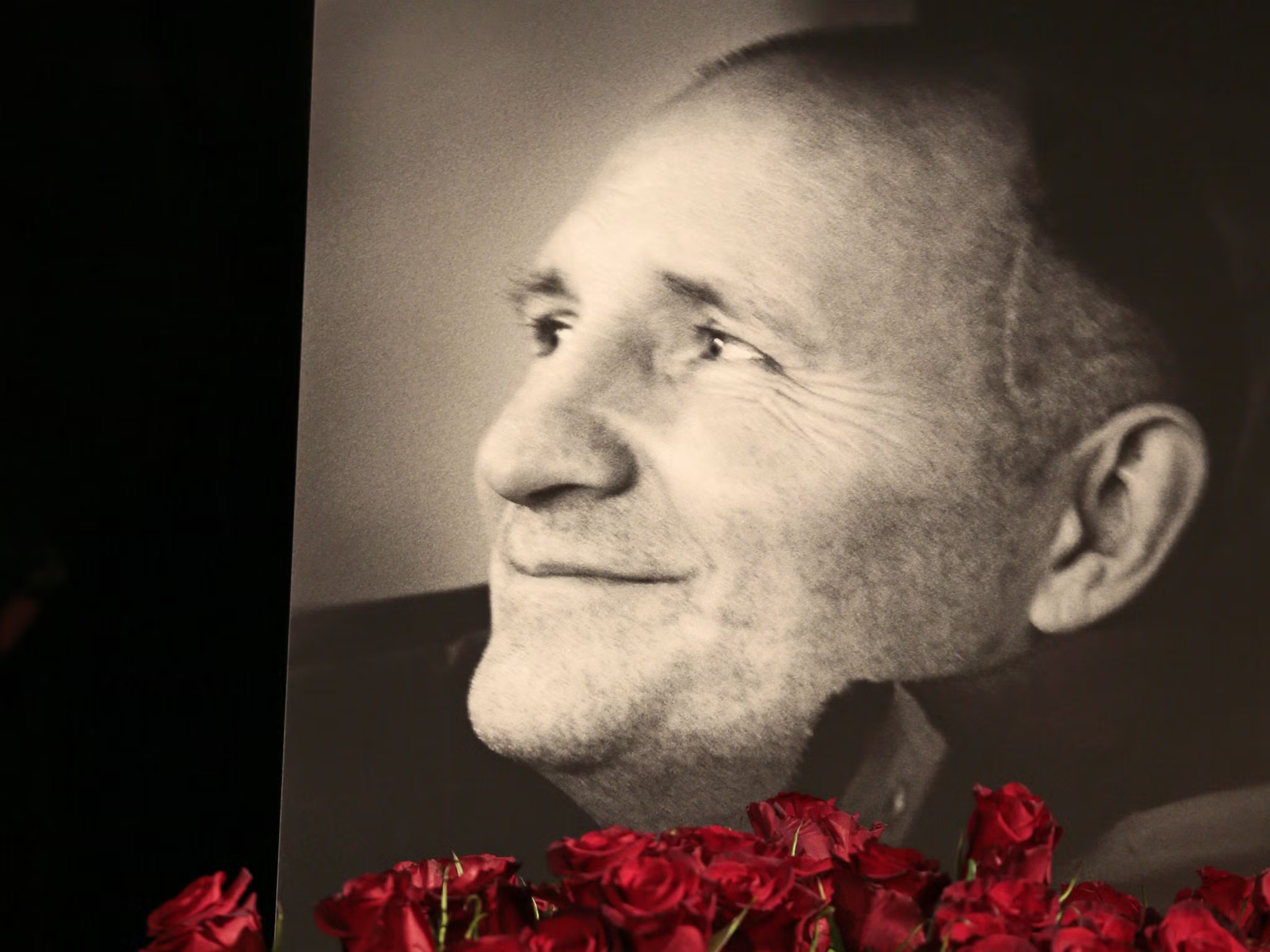Russian journalist Mikhail Beketov endured a life of torment in pursuit of the truth
Five years after his savage, unsolved beating, the campaigning journalist is buried

Your support helps us to tell the story
From reproductive rights to climate change to Big Tech, The Independent is on the ground when the story is developing. Whether it's investigating the financials of Elon Musk's pro-Trump PAC or producing our latest documentary, 'The A Word', which shines a light on the American women fighting for reproductive rights, we know how important it is to parse out the facts from the messaging.
At such a critical moment in US history, we need reporters on the ground. Your donation allows us to keep sending journalists to speak to both sides of the story.
The Independent is trusted by Americans across the entire political spectrum. And unlike many other quality news outlets, we choose not to lock Americans out of our reporting and analysis with paywalls. We believe quality journalism should be available to everyone, paid for by those who can afford it.
Your support makes all the difference.There were few tears and no wails of anguish at Mikhail Beketov’s farewell at Moscow’s House of Journalists. Instead, there was a heavy air of grim resignation, as the depressing realisation set in that another Russian journalist had paid the ultimate price for seeking out the truth.
Mr Beketov edited Khimkinskaya Pravda, a newspaper based in Khimki, a small town just outside the capital. After publishing a series of exposés about a controversial road project that was set to destroy parts of a forest, he was repeatedly threatened, had his car set on fire and his pet dog left dead on his doorstep. He refused to stop his investigations and, in November 2008, was savagely beaten by two assailants wielding metal rods.
As a result of the attack, he lost a leg and several fingers and was unable to speak because shards of his skull had lodged in his brain. The 55-year-old died on Monday after choking on food. Yevgenia Chirikova, who has become a leader of protests against the Khimki bypass, said Mr Beketov’s attackers, who have not been arrested, should now be considered murderers.
There were a number of other attacks on other journalists and ecologists protesting against the road, all of which remain unsolved, except in one case, in which police implicated an official of the Khimki administration in organising the attack, but never said who ordered it. Mr Beketov himself blamed Vladimir Strelchenko, the then mayor of Khimki, who denied any involvement and sued the journalist for libel, albeit unsuccessfully.
“Misha was a patriot of Khimki, and a patriot of his country,” said Oleg Mitvol, a politician and environmental activist, at the farewell ceremony this morning, as colleagues and journalists came to pay their respects. “I hope the way he led his life will serve as an example to other journalists carrying out their profession.”
Many others who were in the room, drawn mainly from Russia’s small but resolute opposition media community, have themselves been threatened or attacked. For most, it was not the first journalist’s funeral they had attended. Oleg Kashin, a reporter with Kommersant newspaper, lingered over the coffin and stared, motionless, as he laid flowers by the corpse. He suffered serious injuries after being attacked by unknown assailants in 2010. Despite receiving a visit from the then President, Dmitry Medvedev, while recovering in hospital, who promised the crime would be solved, no arrests have been made.
“Over the five years since he was attacked, there has been no progress in the investigation to find his attackers, and no progress in the situation around Khimki forest,” said Elena Kostyuchenko, a journalist with the investigative newspaper Novaya Gazeta who had worked with Mr Beketov. “He died without seeing any kind of justice at all.”
One middle-aged woman, walking with difficulty, limped to the microphone at the ceremony and introduced herself as a member of the public. “I notice there aren’t many ordinary people here,” she said. “When actors and other artists die, there are huge crowds. People like to pay their respects to those who play heroes on stage. But sadly we don’t recognise our real heroes.”
Join our commenting forum
Join thought-provoking conversations, follow other Independent readers and see their replies
Comments